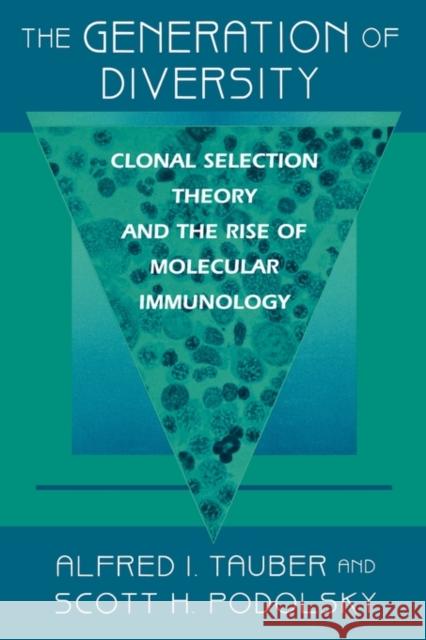The Generation of Diversity: Clonal Selection Theory and the Rise of Molecular Immunology » książka
The Generation of Diversity: Clonal Selection Theory and the Rise of Molecular Immunology
ISBN-13: 9780674001824 / Angielski / Miękka / 2000 / 528 str.
The Generation of Diversity: Clonal Selection Theory and the Rise of Molecular Immunology
ISBN-13: 9780674001824 / Angielski / Miękka / 2000 / 528 str.
(netto: 204,17 VAT: 5%)
Najniższa cena z 30 dni: 212,18 zł
ok. 30 dni roboczych
Bez gwarancji dostawy przed świętami
Darmowa dostawa!
In recent decades immunology has been one of the most exciting--and successful--fields of biomedical research. Over the past thirty years immunologists have acquired a detailed understanding of the immune system's unique recognition mechanism and of the cellular and chemical means used to destroy or neutralize invading organisms. This understanding has been formulated in terms of the clonal selection theory, the dominant explanation of immune behavior. That story is the subject of The Generation of Diversity.A major problem for immunologists had long been to determine how cells of the immune system could produce millions of distinct antibodies--and produce them on demand. The clonal selection theory explains that cells with genetic instructions to produce each antibody exist in the body in small numbers until exposure to the right molecule--the antigen--triggers the selective cloning that will reproduce exactly the cell needed. But how can so many different antibody-producing cells be generated from such limited genetic material? The solution to this question came from new applications of molecular biology, and, as the authors argue, the impact of the new techniques changed both the methods and the concepts of immunology.The Generation of Diversity is an intellectual history of the major theoretical problem in immunology and its resolution in the post-World War II period. It will provide for immunologists essential background for understanding the conceptual conflicts occurring in the field today.











